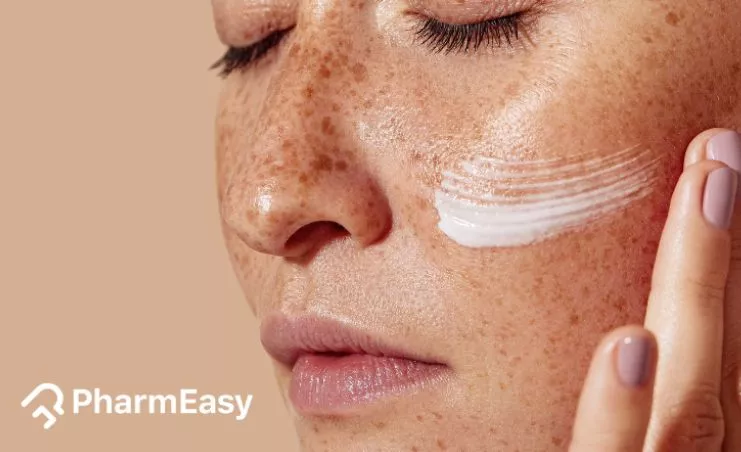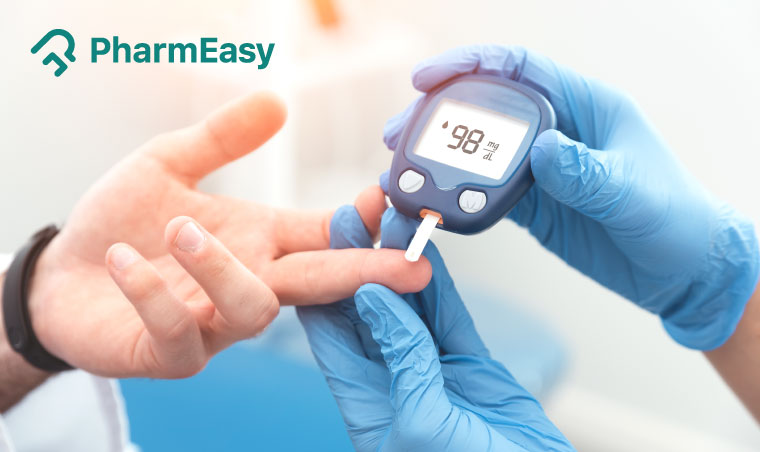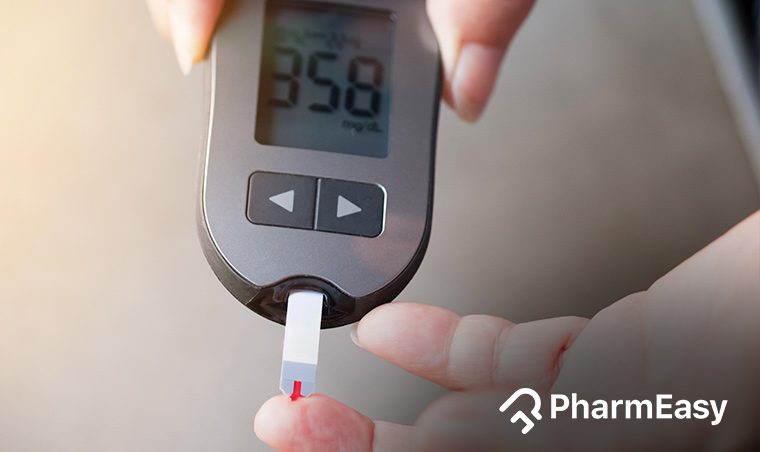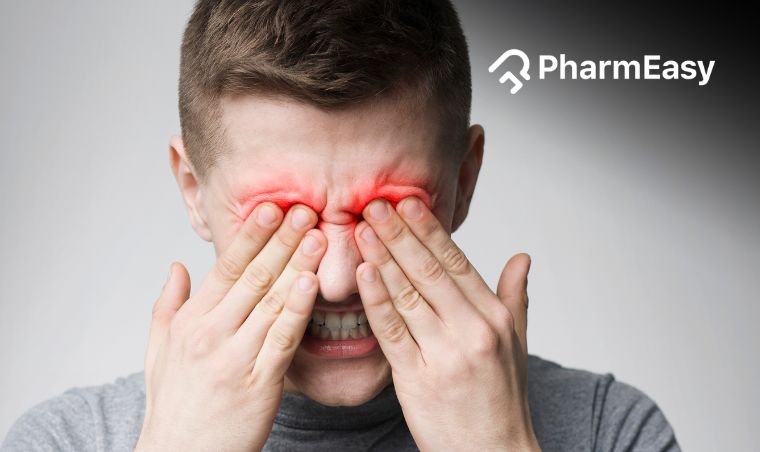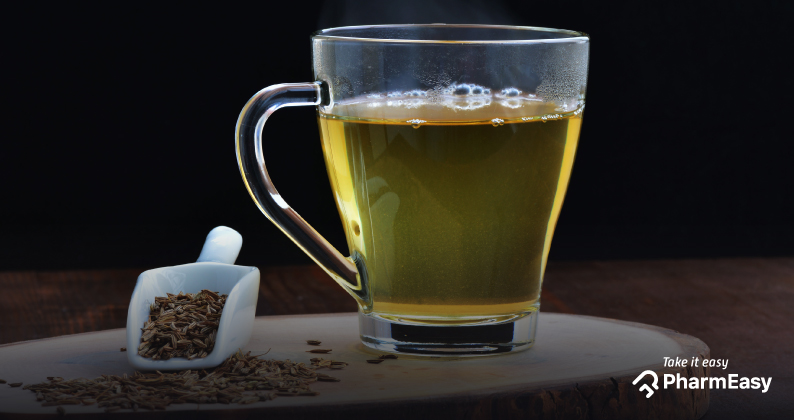Brimonidine
Molecule Description
Brimonidine is useful as eye drops for lowering the eye pressure in conditions
like glaucoma where there are vision problems due to increased pressure of fluids in the eyes. It belongs to a class of medicines called Alpha Agonists.
Uses of Brimonidine
- Brimonidine is used to lower the pressure in the eyes (intraocular pressure) of the patients whose eye pressure is raised to block drainage of the eye fluid (open-angle glaucoma) or due to any other causes (ocular hypertension)...
- This medicine can be used alone or in combination with other medicines for this treatment
Contraindications of Brimonidine
When should one not use Brimonidine
- Allergy to Brimonidine or any other components of the medicine
- Children below the age of 2 years (neonates and infants)
- If you are taking any antidepressants or anti-psychotic medicines (Rasagiline, Selegiline, Amitriptyline, Imipramine, etc.)
Side effects of Brimonidine
Common side effects of this drug are:
- Irritation, redness, burning or white spots on the eye, blurred vision, dry eyes
- Swelling of eyelids, sticky eyes, increased sensitivity to light, vision problems, mild infection of the eye (conjunctivitis)
- Headache, dry mouth, tiredness, weakness, drowsiness, cold, feeling dizzy, stomach pain and discomfort, abnormal taste
- Dry nose, depression, irregular heartbeats, general allergic reactions, breathing problems
Precautions and Warnings of Brimonidine
Pregnancy
Q:
Can I take Brimonidine during pregnancy?
A:
Adequate data is not available. Brimonidine can be used in pregnancy only if it is necessary and alternatives are not available. The decision has to be taken by your doctor.
Breast Feeding
Q:
Can I take Brimonidine while breastfeeding?
A:
It is unknown if Brimonidine secretes in breast milk. It is advised not to use this medicine while breast-feeding.
Driving
Q:
Can I drive if I have consumed Brimonidine?
A:
Brimonidine can cause fatigue, drowsiness, blurred, or abnormal vision. Stay away from driving if you experience any of these symptoms. Be cautious while taking this medicine, especially at night.
Alcohol
Q:
Can I consume alcohol with Brimonidine?
A:
Brimonidine can cause drowsiness and depression which are also caused by alcohol. Hence, only occasional drinking is recommended while taking this medicine.
Other General Warnings
Talk to your doctor if
You have depression, lower blood supply to brain, heart, kidney or liver problems (past history) and blocked blood vessels or blood pressure disorders.
Mode of Action of Brimonidine
How Does It Work?
- In conditions like glaucoma, the regulation that balances production and drainage of the watery fluid (aqueous humor), that nourishes the eye is lost leading to increased volume of this fluid, this builds up pressure in the eye and causes blindness if left untreated...
- Brimonidine works by a dual action of blocking the production of this fluid by increasing the drainage (removal of the fluid from the eye)
Interactions of Brimonidine
Interactions with other medicines
- Antidepressants or anti-psychotic medicines (Rasagiline, Selegiline, Amitriptyline, Imipramine, etc.)
- Medications that cause depressive effects on the brain (anti-anxiety medicines, sleeping pills, anesthesia medicines)
- Other medicines used to treat hypertension or heart conditions (Isoprenaline, Prazosin, etc.)
Interactions with food items
A person can use Brimonidine before or after the meals.
Dietary Restrictions of Brimonidine
No information is available on dietary restrictions while you are taking Brimonidine, consult your doctor or pharmacist for further information.
Dosage of Brimonidine
Overdose
If you use more eye drops than required, it may not be harmful. Inform your doctor in case of symptoms like drowsiness, eye irritation or swelling, or sometimes low blood pressure. But if in case of accidental overdose by way of mouth, it may lead to serious symptoms such as paleness, low temperature, sleepiness and breathing difficulties. In such cases, seek medical attention without delay....
Missed a Dose
Take the missed dose as early as you remember. Skip the missed dose if it is too late and do not take extra medicine or double dose to compensate for the missed dose.
Content Details
WRITTEN BY
Dr. Ravi Kakarla
MBBS, MBA
REVIEWED BY
Dr. Ritu Budania
MBBS, MD (Pharmacology)
Frequently Asked Questions (FAQs)
Q: What is glaucoma?
- Aqueous humor is a clear watery fluid produced in the eye whose primary function is to maintain the shape of the eye and nourish it. This fluid is continuously produced, and hence an efficient fluid handling network is required to balance the new fluid produced and the old fluid. There are two kinds of pathways that the eye uses to remove the old fluid – the main pathway (trabecular outflow) and a second pathway (uveosacral outflow). Blockage of either or both of the paths will raise the pressure of this fluid in the eye and causes glaucoma. Uncontrolled pressure will affect the optic nerve which transmits signals from the eye to the brain. Damage to this nerve will result in blindness. If the main pathway (trabecular outflow) is blocked (which is common with increasing age), the condition is called open-angle glaucoma and if both the pathways are blocked, it is known as ‘closed-angle glaucoma’. While open-angle glaucoma is not painful and the patient usually does not know about the progression of the disease and it may be late by the time this condition is detected. When diagnosed, this condition is treated with eye drops. Surgery may be required if eye drops don’t work. Closed-angle glaucoma is a painful and emergency condition and the pressure is relieved by laser procedures....
Q: How should I use Brimonidine eye drops?
- Wash your hands before using the eye drops
- Tilt your head in such a way that you are facing the ceiling. Pull the lower lid gently and squeeze a drop from the bottle into your eye
- Close the eye and press it with your finger for 1 minute to prevent any leakage
- Do not touch the dropper to the eye. Once used, close the cap tightly
- If more than one topical ophthalmic product (eye product) is being used, the products should be administered at least 5-15 minutes apart
- Brimonidine should not be used in children below 12 years of age
References
View All
Recent articles
Disclaimer
The information provided herein is supplied to the best of our abilities to make it accurate and reliable as it is published after a review by a team of professionals. This information is solely intended to provide a general overview on the product and must be used for informational purposes only. You should not use the information provided herein to diagnose, prevent, or cure a health problem. Nothing contained on this page is intended to create a doctor-patient relationship, replace or be a substitute for a registered medical practitioner's medical treatment/advice or consultation. The absence of any information or warning to any medicine shall not be considered and assumed as an implied assurance. We highly recommend that you consult your registered medical practitioner for all queries or doubts related to your medical condition. You hereby agree that you shall not make any health or medical-related decision based in whole or in part on anything contained in the Site. Please click here for detailed T&C.
Top-Tests we cover:
Top-Selling Healthcare Products:
Top-Selling Medicines:
Top-Searched Medicines:
Azee|





